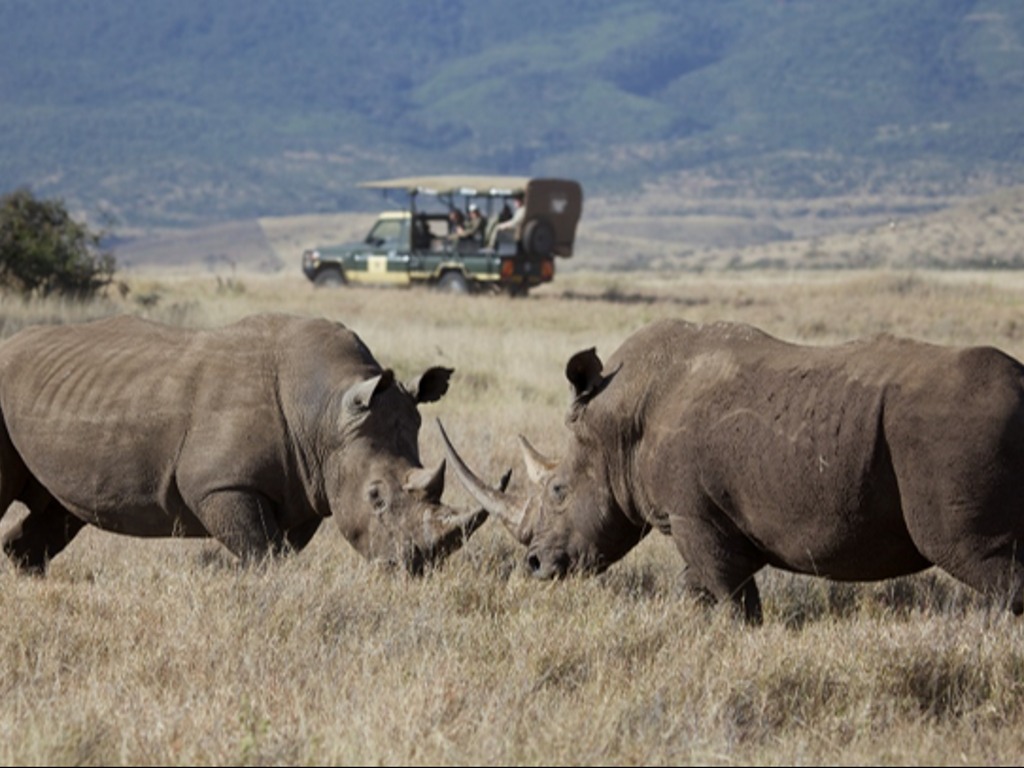African Travel Inc. helping to create a healthy planet

African Travel, Inc. (ATI) is continuing its commitment to promote ethical wildlife experiences by sharing responsible practices with clients to help create a healthy planet.
ATI is highlighting three key areas where clients can make a positive impact on wildlife conservation and the protection of habitats while enjoying an immersive African safari adventure.
These include supporting conservancies and their community-centric initiatives, understanding the impact of geotagging endangered wildlife, and choosing reputable travel companies with an animal welfare policy.
Sherwin Banda, President of African Travel, Inc., said that: “Our Earth Month initiative is to continue to raise awareness about protecting Africa’s wildlife and their natural habitats while ending poaching and wildlife trafficking, especially the African black rhino, which is the most critically endangered animal on the continent.”
Banda continued: “For the past 10 years, ATI has had a well-established animal welfare policy and has been supporting the preservation efforts of leading conservancies while educating our guests. When clients make conscious choices and prioritize ethical practices by travelling with reputable safari outfitters, they become an integral part of the conservation effort.”
The three ways clients can practice responsible wildlife excursions on their next safari journey, include:
Supporting Leading Wildlife Conservation Partners
Private reserves in Africa are working to enhance Africa’s ecosystems, investment in community livelihoods and wildlife. Clients can contribute to the preservation of endangered species by choosing safari outfitters that support and promote these conservancies and reserves. In Northern Kenya, guests can experience the successful conservation efforts of Lewa Wildlife Conservancy, East Africa’s first private and largest rhino sanctuary, on ATI’s 12-day World’s Greatest Show & Safari.
Not Geotagging Endangered Wildlife
While on safari, guests post photos of animal encounters on social media sites, not realizing that embedded within the post or the image is a geotag containing the GPS location of endangered wildlife such as elephants, rhinos and big cats. Poachers use this location data to track valuable animals for poaching. On the 8-day Under Kenyan Skies safari, clients spend a day with East Africa’s first all-female anti-poaching unit. Guests can observe a dog sniffing demonstration, which showcases how these highly trained bloodhounds are able to track poachers to protect the 57,000-acre conservancy and its precious wildlife. African Travel, Inc. shares tips on disabling geotagging to allow guests to protect and preserve wildlife while enjoying its beauty.
Animal Welfare Policy
Clients can protect the world’s wildlife while advocating for the highest standard of ethical experiences in their excursions, free of animal cruelty. According to World Animal Protection, over half a million wild animals suffer in tourist entertainment venues globally. In 2014, TTC established an Animal Welfare Policy in partnership with World Animal Protection and updated it in 2020 to ensure that all wildlife experiences meet the approved guidelines of animal welfare based on the Five Domains of Animal Welfare – nutrition, environment, health, behaviour, and mental state. Clients can learn about Shamwari Game Reserve’s great conservation projects on the 10-day South Africa’s Natural Wonders. The journey includes visits to Born Free Big Cat Sanctuary and The Wildlife Rehabilitation Centre.
Go to www.africantravelinc.com/advisor for more.


